Daily Vocabulary Words: List of Daily Used Words
Hi there. Welcome to this special section @ Wordpandit.
Our endeavour here is straightforward: highlighting important daily vocabulary words, you would encounter in The Hindu. This is your repository of commonly used words; essentially, we are posting a list of daily used words. Hence, this has significant practical application as it teaches you words that are commonly used in a leading publication such as The Hindu.
Visit the website daily to learn words from The Hindu.
Word-1: Assertion
Meaning: A confident and forceful statement of fact or belief.
Synonyms: declaration, affirmation, claim, statement, proclamation, contention, averment, avowal, insistence.
Usage Examples:
1. Her assertion that she had never stolen anything was hard to believe.
2. The scientist made an assertion based on his recent findings.
3. Without evidence, his assertion remained unproven.
4. She challenged his assertion, demanding proof.
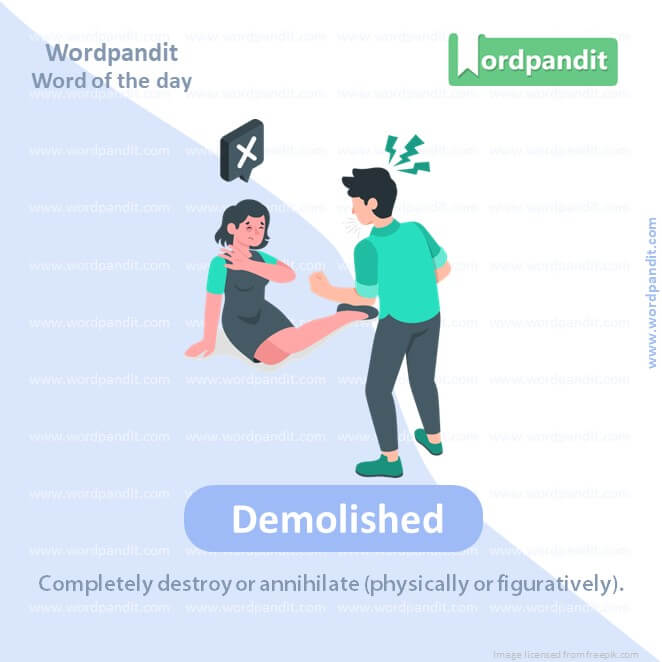
Word-2: Demolished
Meaning: Completely destroy or annihilate (physically or figuratively).
Synonyms: destroyed, razed, obliterated, ruined, wrecked, shattered, devastated, annihilated.
Usage Examples:
1. The old building was demolished to make way for a new mall.
2. His argument was completely demolished in the debate.
3. The hurricane demolished the coastal houses.
4. She demolished the cake in minutes.
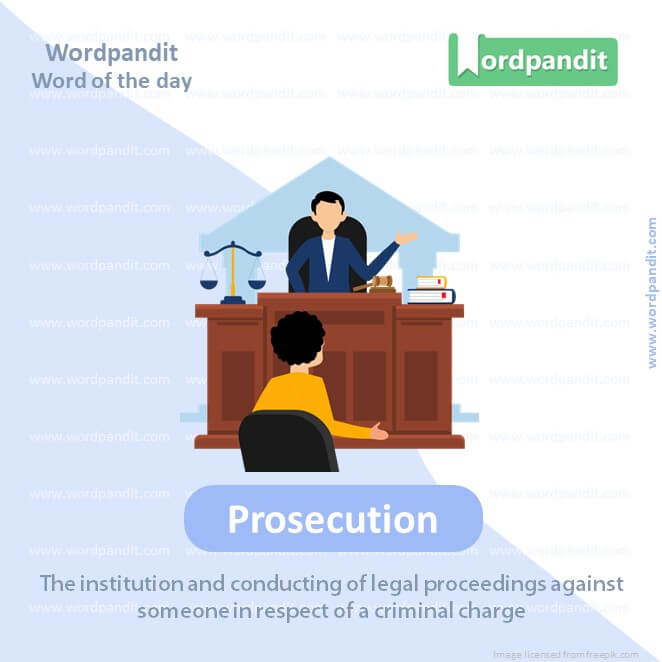
Word-3: Prosecution
Meaning: The institution and conducting of legal proceedings against someone in respect of a criminal charge.
Synonyms: litigation, lawsuit, legal action, indictment, trial, case, suit.
Usage Examples:
1. The prosecution presented their evidence clearly.
2. He faced prosecution for tax evasion.
3. The case was dropped due to lack of evidence from the prosecution.
4. She was a key witness for the prosecution.
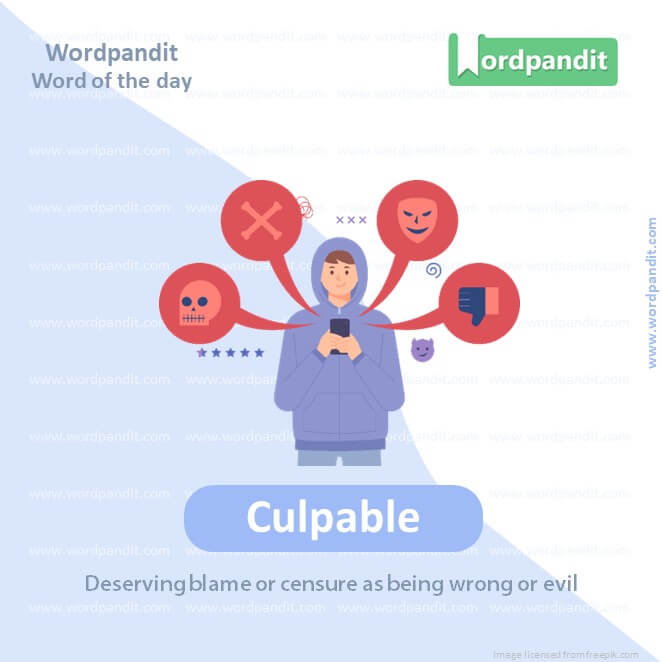
Word-4: Culpable
Meaning: Deserving blame or censure as being wrong or evil.
Synonyms: guilty, blameworthy, at fault, responsible, liable, accountable, answerable, chargeable.
Usage Examples:
1. He was found culpable for the accident.
2. The jury had to decide if she was culpable of the crime.
3. Though he felt culpable, he did not admit his mistake.
4. The court declared the company culpable for environmental damage.
Word-5: Expediency
Meaning: The quality of being convenient and practical despite possibly being improper or immoral.
Synonyms: convenience, advantage, prudence, advisability, suitability, appropriateness, opportunism.
Usage Examples:
1. The decision was made more for political expediency than for justice.
2. He often chose methods based on expediency rather than morality.
3. The company adopted the policy out of financial expediency.
4. Expediency led them to overlook certain ethical concerns.
Word-6: Crescendo
Meaning: A gradual increase in loudness or intensity, especially in music.
Synonyms: escalation, surge, climax, peak, upswing, upsurge, rise, buildup.
Usage Examples:
1. The music reached a crescendo before suddenly becoming quiet.
2. The excitement in the stadium built to a crescendo as the final whistle approached.
3. Her anger was on a crescendo when she found out the truth.
4. The fireworks began with a slow rhythm but ended in a dramatic crescendo.
Word-7: Tepid
Meaning: Moderately warm; showing little enthusiasm.
Synonyms: lukewarm, warmish, mild, half-hearted, unenthusiastic, indifferent, cool.
Usage Examples:
1. She gave him a tepid response to his proposal.
2. The soup was served at a tepid temperature.
3. His performance received tepid applause from the audience.
4. The team’s tepid effort led to another loss.
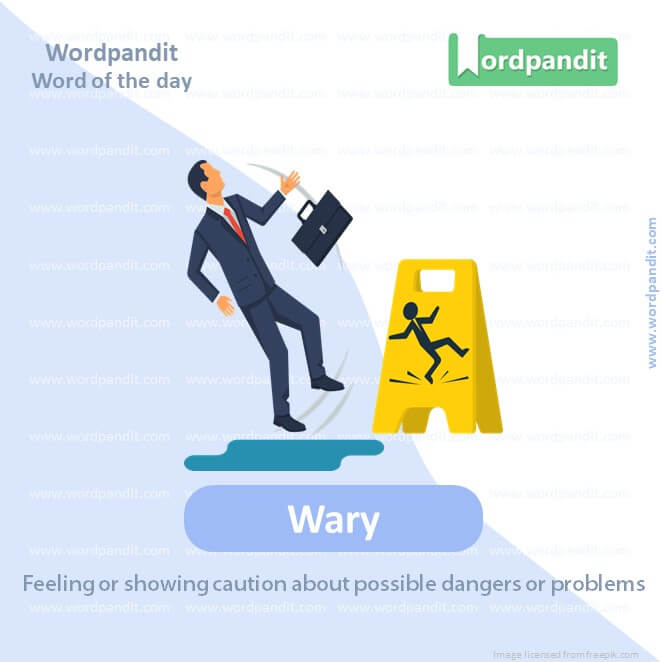
Word-8: Wary
Meaning: Feeling or showing caution about possible dangers or problems.
Synonyms: cautious, careful, circumspect, watchful, vigilant, guarded, on guard, attentive.
Usage Examples:
1. Be wary of strangers offering you a ride.
2. She became wary of his intentions.
3. After his previous loss, he was wary of making another investment.
4. Animals in the wild are naturally wary of humans.
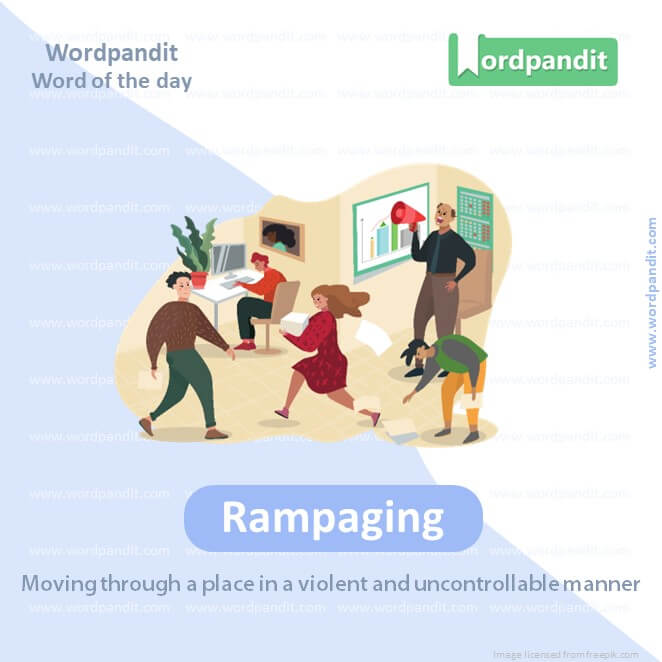
Word-9: Rampaging
Meaning: Moving through a place in a violent and uncontrollable manner.
Synonyms: raging, running wild, rioting, berserk, out of control, wild, unrestrained, frenzied.
Usage Examples:
1. The fans went on a rampage after their team lost the final.
2. The rampaging bull destroyed everything in its path.
3. The storm left a path of destruction, rampaging through the village.
4. The rampaging mob was finally controlled by the police.













